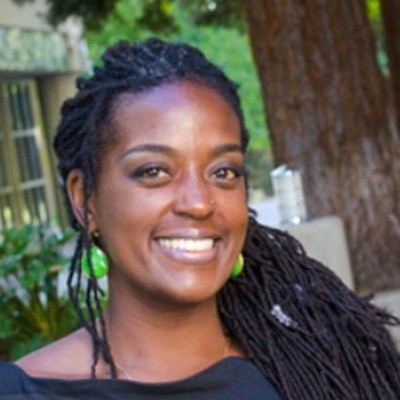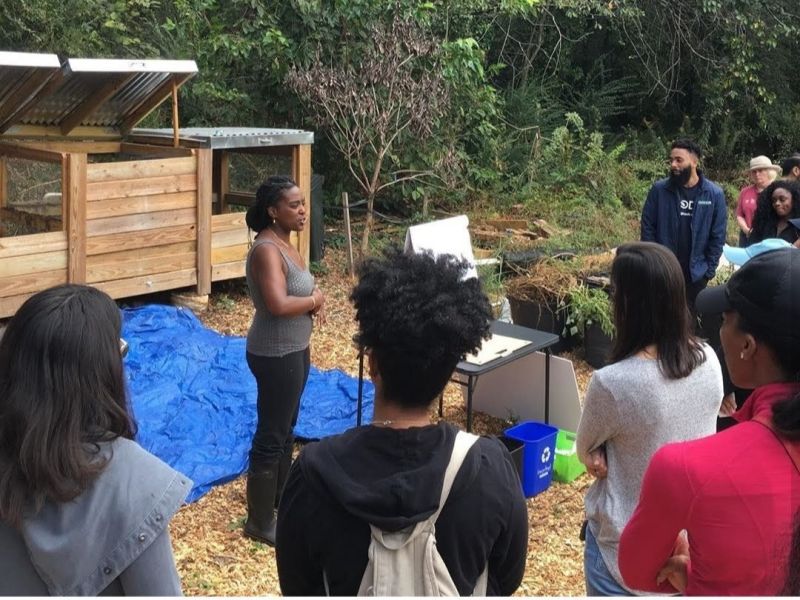Volunteer Highlight: Natasha Dyer

Natasha Dyer lived in Los Angeles as a production fashion designer for over a decade. She describes the 2008 financial crash as a “jolt” to the industry – as people lost jobs and homes, they had fewer resources for luxury fashion. As positions in the industry became increasingly scarce, Natasha searched for a new path.
After attending a local green jobs fair, she signed up for a free recycling course at a local college. In her third class, Natasha learned that organic waste in landfills was the third largest contributor to methane emissions, and her world entirely shifted.
After finding her “new religion,” she received her master’s degree in Urban Sustainability from Antioch University with her thesis focused on pushing municipalities to act quickly to rescue organics out of landfills. Soon after, she moved to Atlanta to take a position in the Mayor’s Office of Sustainability and Resilience.
Her drive for a better world is evident: “I felt like so many people were talking about plastic bottles and how to recycle those, but no one was talking about food waste– recovering food to feed people or recycling scraps to create compost.” Before she began volunteering with SHA, Natasha challenged herself to eat only rescued food items for sixty days.

“I decided to eat wasted food that was destined for the landfill because if I was telling people, as part of my work in the Mayor’s office, how this food was great and healthy and to feed food insecure residents with it, I wanted to have the experience of eating it myself.”
I feel hopeful talking to Natasha. Like many SHA volunteers, food rescue is only a part of Natasha’s work around hunger and climate advocacy. With her background, it isn’t surprising that she implores me to consider what we could achieve with legislation that requires businesses to reduce food waste and donate what’s left. “Hunger is everywhere. It’s your friend, neighbor, children, and relatives. This isn’t an issue relegated to one portion of society. Keep pushing on laws, keep pushing on legislation.” I’m honored that Natasha continues to share her perspective, moving us ninety-two food rescue routes closer to a better future.